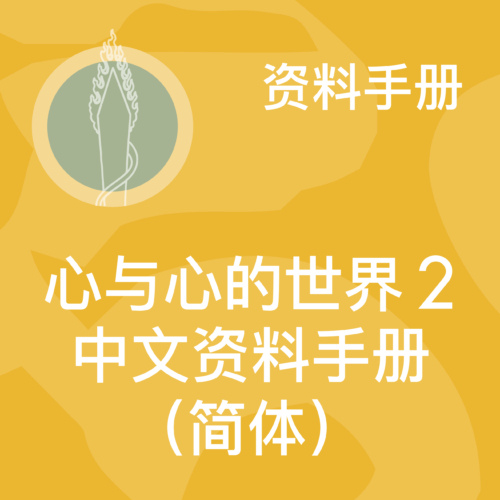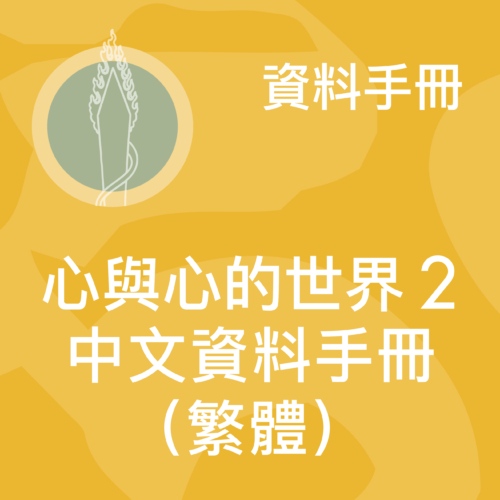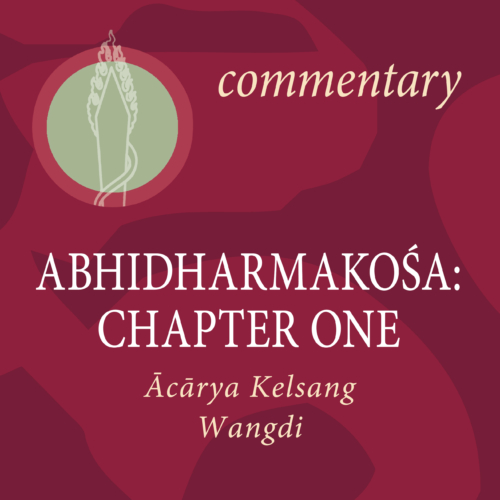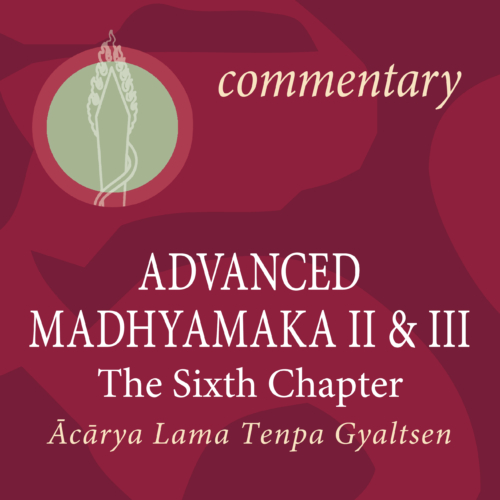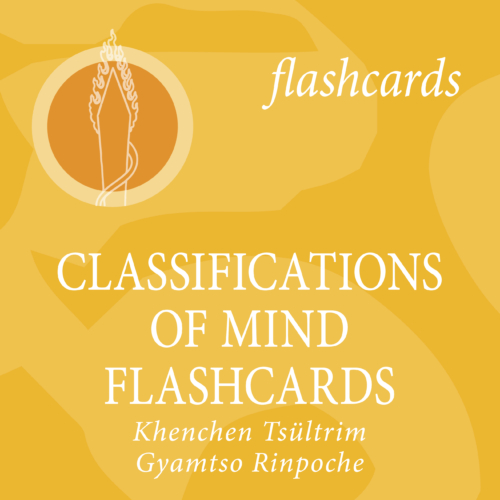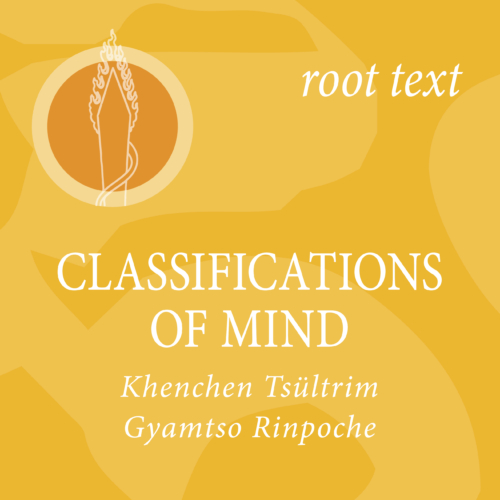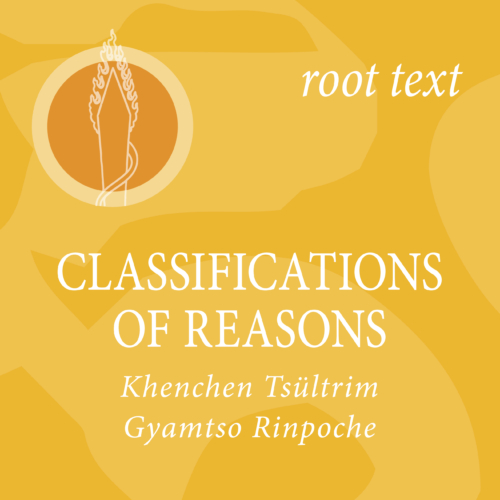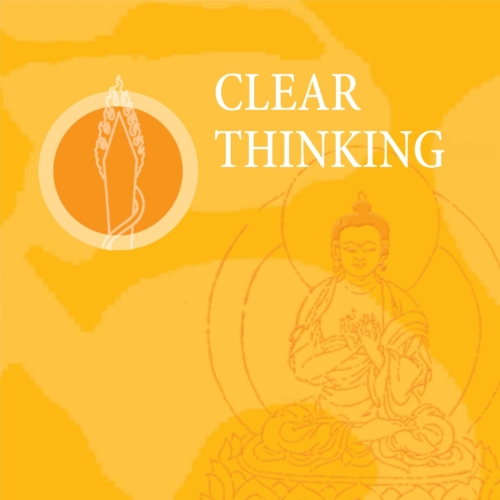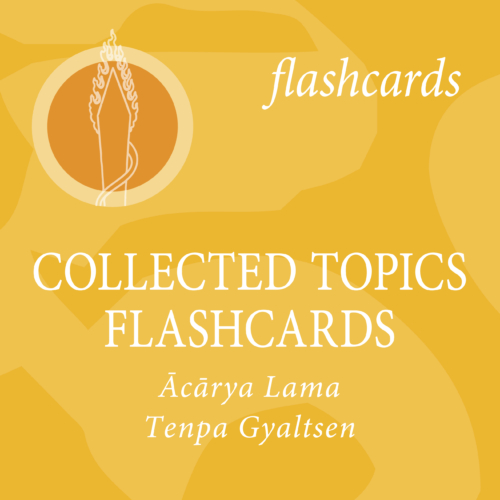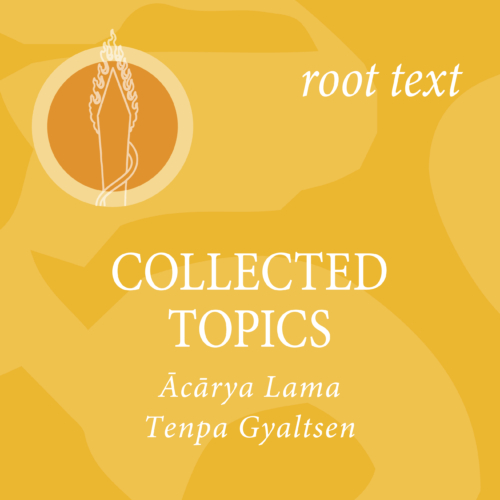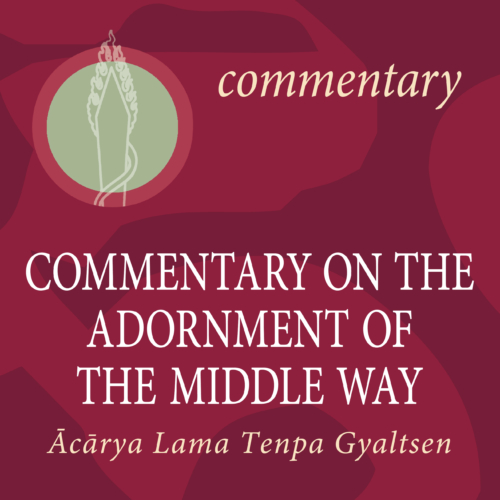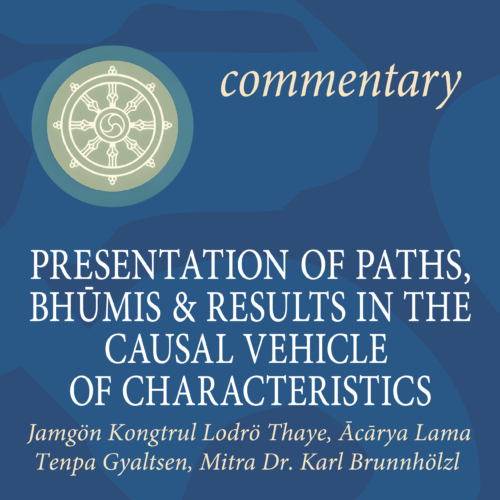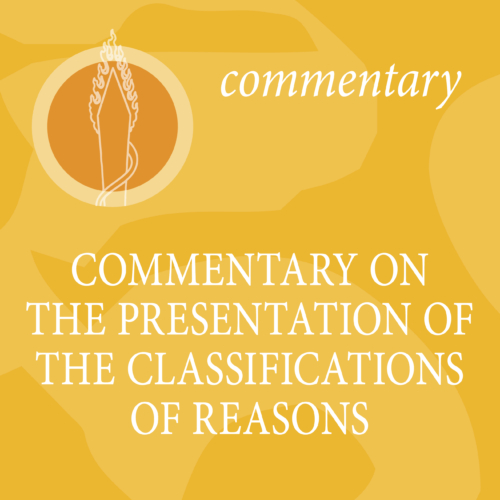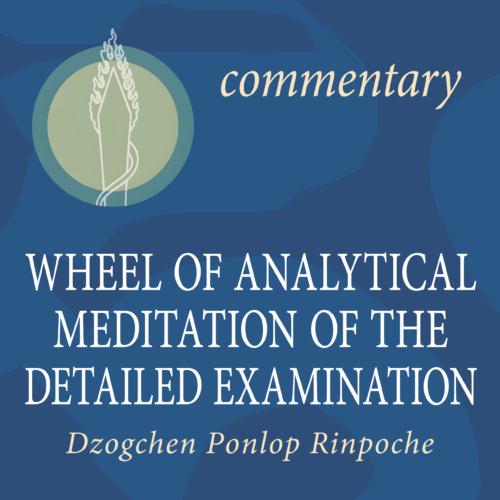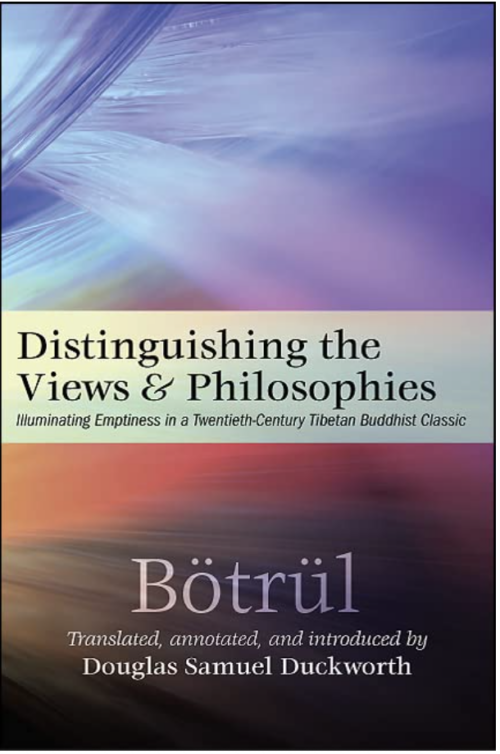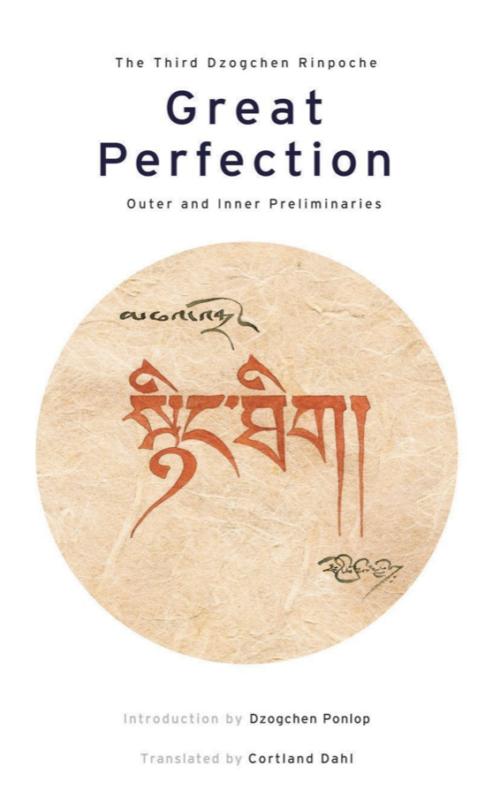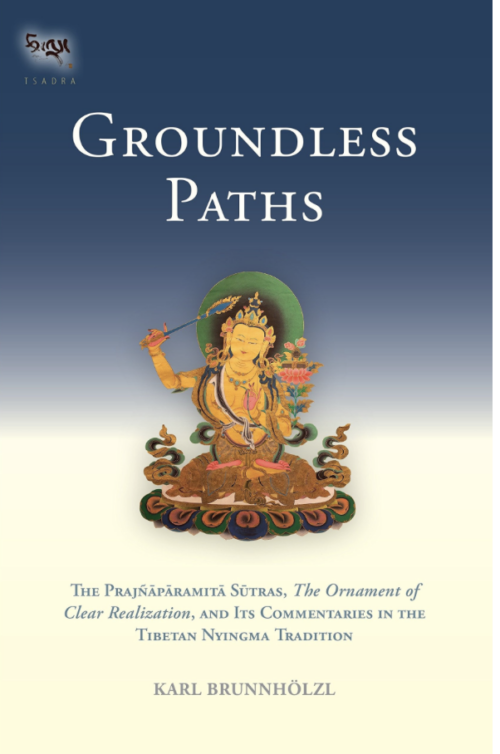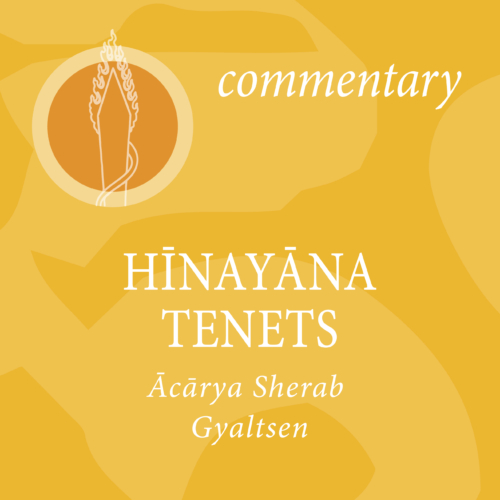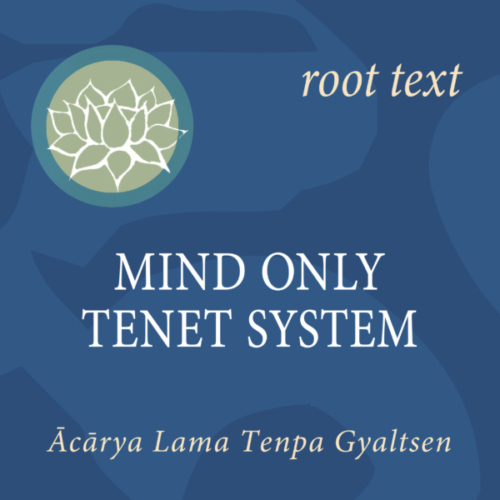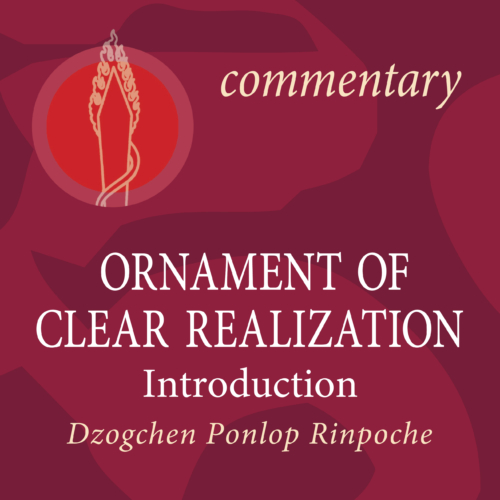-
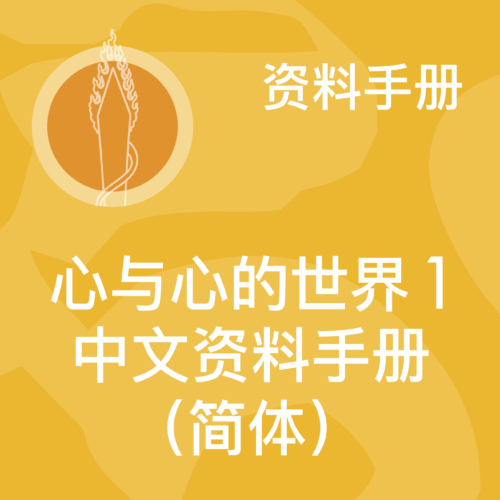 新版《心与心的世界1》和《心与心的世界2》对应英文版的两本同名手册,两本加起来是对堪布仁波切所著的原典《心的科学:逻辑海典心髓》的完整的释论。新版替代2021中文版的《心的科学:逻辑海典心髓释论》。新版按照英文版编排,并增加了阿阇黎谢拉布嘉诚的释论,和每课后的分析式禅修和闻思题。 《心与心的世界1》详细分析作为体验者的这个心,它如何以如实和不如实的方式感知世界,原典《心的科学:逻辑海典心髓》教导心的分类,法教源泉是陈那和法称的量论学传统。要点是区分哪些面向的心如实地感知现象本来的样子,哪些面向的心是错乱迷惑的,并束缚我们于轮回。手册还介绍了基础乘中有部和经部关于二谛和感知理论的宗义思想。每一课包括课外阅读、分析式禅修、闻思题。
新版《心与心的世界1》和《心与心的世界2》对应英文版的两本同名手册,两本加起来是对堪布仁波切所著的原典《心的科学:逻辑海典心髓》的完整的释论。新版替代2021中文版的《心的科学:逻辑海典心髓释论》。新版按照英文版编排,并增加了阿阇黎谢拉布嘉诚的释论,和每课后的分析式禅修和闻思题。 《心与心的世界1》详细分析作为体验者的这个心,它如何以如实和不如实的方式感知世界,原典《心的科学:逻辑海典心髓》教导心的分类,法教源泉是陈那和法称的量论学传统。要点是区分哪些面向的心如实地感知现象本来的样子,哪些面向的心是错乱迷惑的,并束缚我们于轮回。手册还介绍了基础乘中有部和经部关于二谛和感知理论的宗义思想。每一课包括课外阅读、分析式禅修、闻思题。 -
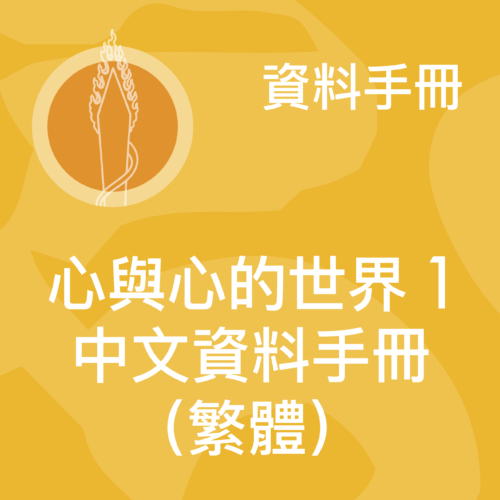 新版《心與心的世界1》和《心與心的世界2》對應英文版的兩本同名手冊,兩本加起來是對堪布仁波切所著的原典《心的科學:邏輯海典心髓》的完整的釋論。新版替代2021中文版的《心的科學:邏輯海典心髓釋論》。新版按照英文版編排,並增加了阿闍黎謝拉布嘉誠的釋論,和每課後的分析式禪修和聞思題。《心與心的世界1》詳細分析作為體驗者的這個心,它如何以如實和不如實的方式感知世界,原典《心的科學:邏輯海典心髓》教導心的分類,法教源泉是陳那和法稱的量論學傳統。要點是區分哪些面向的心如實地感知現象本來的樣子,哪些面向的心是錯亂迷惑的,並束縛我們於輪回。手冊還介紹了基礎乘中有部和經部關於二諦和感知理論的宗義思想。每一課包括課外閱讀、分析式禪修、聞思題。
新版《心與心的世界1》和《心與心的世界2》對應英文版的兩本同名手冊,兩本加起來是對堪布仁波切所著的原典《心的科學:邏輯海典心髓》的完整的釋論。新版替代2021中文版的《心的科學:邏輯海典心髓釋論》。新版按照英文版編排,並增加了阿闍黎謝拉布嘉誠的釋論,和每課後的分析式禪修和聞思題。《心與心的世界1》詳細分析作為體驗者的這個心,它如何以如實和不如實的方式感知世界,原典《心的科學:邏輯海典心髓》教導心的分類,法教源泉是陳那和法稱的量論學傳統。要點是區分哪些面向的心如實地感知現象本來的樣子,哪些面向的心是錯亂迷惑的,並束縛我們於輪回。手冊還介紹了基礎乘中有部和經部關於二諦和感知理論的宗義思想。每一課包括課外閱讀、分析式禪修、聞思題。 -
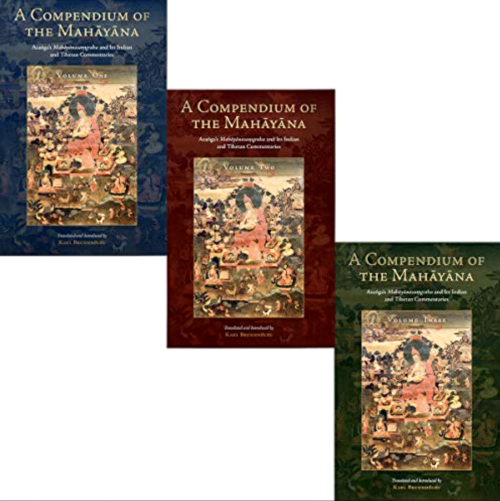
- Also available as an eBook for Apple and Android devices.
- Limited supply.
- The hardcopy book is shipped from the US. International customers may wish to explore local booksellers, Shambala Publications, or Amazon to save on shipping cost.
Translator: Karl Brunnhölzl
Winner of the Khyentse Foundation Prize for Outstanding Translation. The first complete English translation of Asaṅga's Mahāyānasaṃgraha, the most important and comprehensive Indian Yogācāra text, and all its available Indian commentaries. The Mahāyānasaṃgraha, published here with its Indian and Tibetan commentaries in three volumes, presents virtually everything anybody might want to know about the Yogācāra School of mahāyāna Buddhism. It discusses in detail the nature and operation of the eight kinds of consciousness, the often-misunderstood notion of “mind only” (cittamātra), dependent origination, the cultivation of the path and its fruition in terms of the four wisdoms, and the three bodies (kāyas) of a buddha. Volume 1 presents the translation of the Mahāyānasaṃgraha along with a commentary by Vasubandhu. The introduction gives an overview of the text and its Indian and Tibetan commentaries, and explains in detail two crucial elements of the Yogācāra view: the ālaya-consciousness and the afflicted mind (kliṣṭamanas). Volume 2 presents translations of the commentary by Asvabhāva and an anonymous Indian commentary on the first chapter of the text. These translations are supplemented in the endnotes by excerpts from Tibetan commentaries and related passages in other Indian and Chinese Yogācāra works. Volume 3 includes appendices with excerpts from other Indian and Chinese Yogācāra texts and supplementary materials on major Yogācāra topics in the Mahāyānasaṃgraha. -
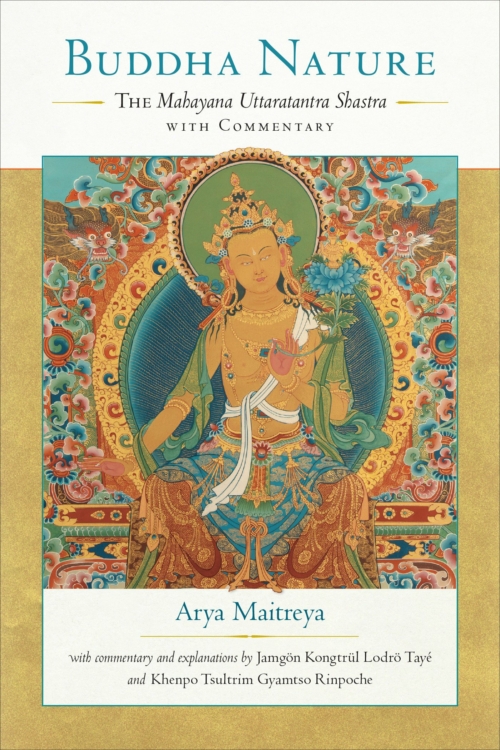
- Also available as an eBook for Apple or Android devices.
- The hardcopy book is shipped from the US. International customers may wish to explore local booksellers or Amazon.com to save on shipping cost.
Buddha Nature: The Mahayana Uttaratantra Shastra with Commentary by Maitreya, Jamgön Kongtrül Lodrö Tayé and Khenpo Tsültrim Gyamtso Rinpoche
Author: Arya Maitreya Commentary: Jamgön Kongtrül Lodrö Tayé and Khenpo Tsültrim Gyamtso Rinpoche Translator: Rosemary Fuchs
All sentient beings, without exception, have buddha nature—the inherent purity and perfection of the mind, untouched by changing mental states. Thus there is neither any reason for conceit nor self-contempt. This is obscured by veils that are removable and do not touch the inherent purity and perfection of the nature of the mind. The Mahayana Uttaratantra Shastra, one of the “Five Treatises” said to have been dictated to Asanga by the Bodhisattva Maitreya, presents the Buddha’s definitive teachings on how we should understand this ground of enlightenment and clarifies the nature and qualities of buddhahood. This seminal text details with great clarity the view that forms the basis for Vajrayana, and especially Mahamudra, practice. -
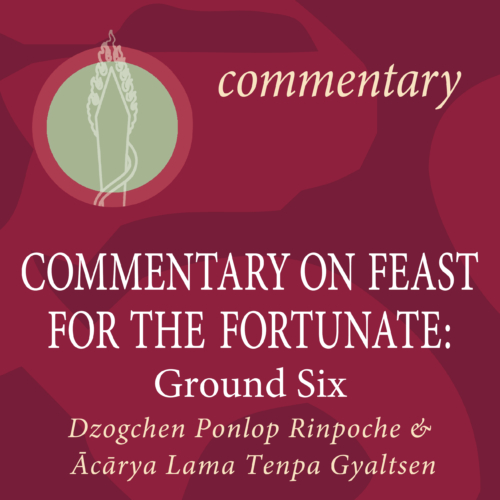 The commentary, Feast for the Fortunate, is the ninth Karmapa’s abridgement of the eighth Karmapa, Mikyö Dorje’s masterpiece, The Chariot of the Takpo Kagyü Siddhas. In it readers will find previously unavailable material on the Karmapa’s Middle Way view and a rare window into a philosophically charged era of Middle Way exposition in Tibetan Buddhism. Wangchuk Dorje’s comprehensive commentary on the Indian master Chandrakirti’s seminal text, the Madhyamakavatara, is marked by eloquent poetry, vigorous and extensive analysis, and heart instructions on breaking through the veils of confusion to independently experience the true nature of things. Includes root text and commentary by the ninth Karmapa Rangjung Dorje, translated by Tyler Dewar.
The commentary, Feast for the Fortunate, is the ninth Karmapa’s abridgement of the eighth Karmapa, Mikyö Dorje’s masterpiece, The Chariot of the Takpo Kagyü Siddhas. In it readers will find previously unavailable material on the Karmapa’s Middle Way view and a rare window into a philosophically charged era of Middle Way exposition in Tibetan Buddhism. Wangchuk Dorje’s comprehensive commentary on the Indian master Chandrakirti’s seminal text, the Madhyamakavatara, is marked by eloquent poetry, vigorous and extensive analysis, and heart instructions on breaking through the veils of confusion to independently experience the true nature of things. Includes root text and commentary by the ninth Karmapa Rangjung Dorje, translated by Tyler Dewar. -
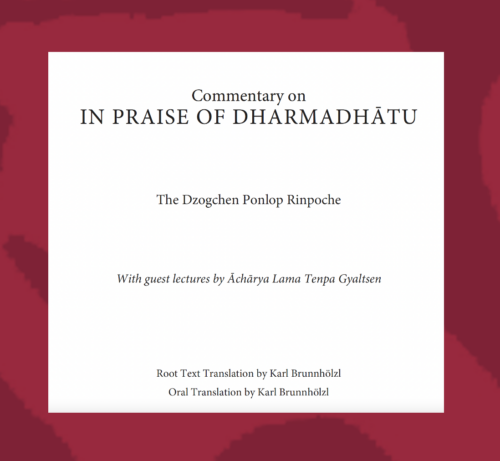 Commentary: This text is published as part of the Nītārtha Institute study program directed by The Dzogchen Ponlop Rinpoche. Commentary on In Praise of Dharmadhātu © 2009 by The Dzogchen Ponlop Rinpoche and Nītārtha international. Root Text: Root stanzas from first edition draft translation of In Praise of Dharmadhātu translated by Karl Brunnhölzl. © 2005 Karl Brunnhölzl and Nītārtha Institute.
Commentary: This text is published as part of the Nītārtha Institute study program directed by The Dzogchen Ponlop Rinpoche. Commentary on In Praise of Dharmadhātu © 2009 by The Dzogchen Ponlop Rinpoche and Nītārtha international. Root Text: Root stanzas from first edition draft translation of In Praise of Dharmadhātu translated by Karl Brunnhölzl. © 2005 Karl Brunnhölzl and Nītārtha Institute. -
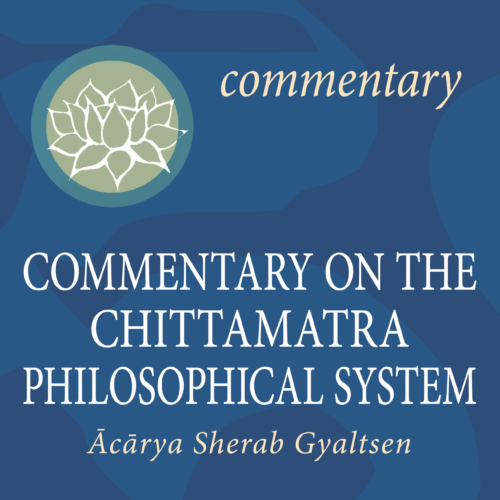
A commentary by Acharya Sherab Gyaltsen
Root verses and commentary on An Exposition Of The Presentation of the Philosophical Systems of the Great Vehicle An Exposition that Reveals the Presentation of the Philosophical Systems of the Chittamatrikas of the Great Vehicle by Dzogchen Ponlop Rinpoche. Translated by Karl Brunnhölzl, Tyler Dewar, and Scott Wellenbach. -
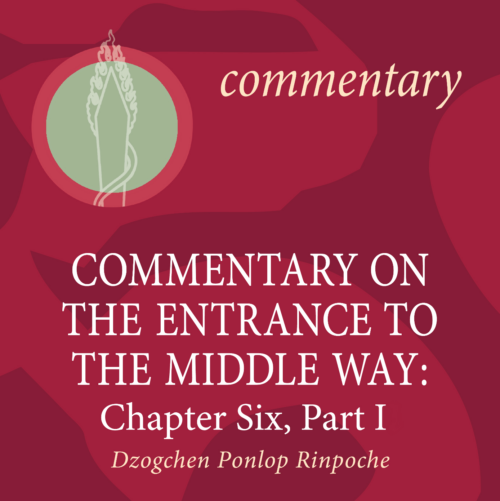
Commentary by Dzogchen Ponlop Rinpoche
This series explicates one of the principal Indian classics of the Madhyamaka tradition, Chandrakirti’s Madhyamakavatara (Entrance to the Middle Way), along with the Kagyü commentary by the eighth Karmapa, The Chariot of the Dakpo Kagyüs. These transcripts cover the Madhyamakavatara’s eleven chapters, which correlate with the ten bhumis (grounds) and the ten paramitas (perfections), plus the ultimate bhumi of buddhahood. The focus is particularly on the sixth chapter of the Madhyamakavatara, which discusses prajna (transcendental knowledge) and its realization of emptiness. Main topics include the selflessness of phenomena and the individual, and the impossibility of finding a self anywhere with the range of phenomenal experience. Includes root text by Chandrakirti and commentary by Mikyö Dorje, translated by Elizabeth M. Callahan. -
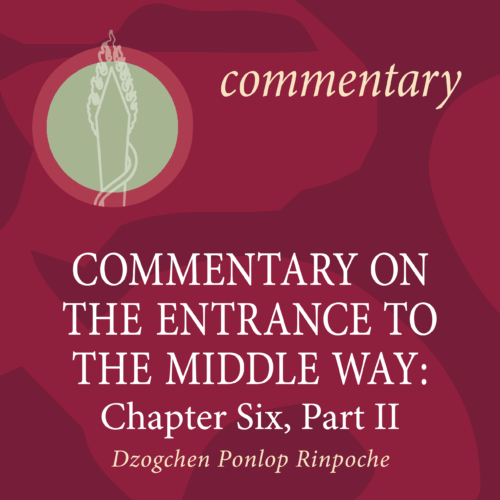
Commentary by Dzogchen Ponlop Rinpoche
This series explicates one of the principal Indian classics of the Madhyamaka tradition, Chandrakirti’s Madhyamakavatara (Entrance to the Middle Way), along with the Kagyü commentary by the eighth Karmapa, The Chariot of the Dakpo Kagyüs. These transcripts cover the Madhyamakavatara’s eleven chapters, which correlate with the ten bhumis (grounds) and the ten paramitas (perfections), plus the ultimate bhumi of buddhahood. The focus is particularly on the sixth chapter of the Madhyamakavatara, which discusses prajna (transcendental knowledge) and its realization of emptiness. Main topics include the selflessness of phenomena and the individual, and the impossibility of finding a self anywhere with the range of phenomenal experience. Includes root text by Chandrakirti and commentary by Mikyö Dorje, translated by Elizabeth M. Callahan. -
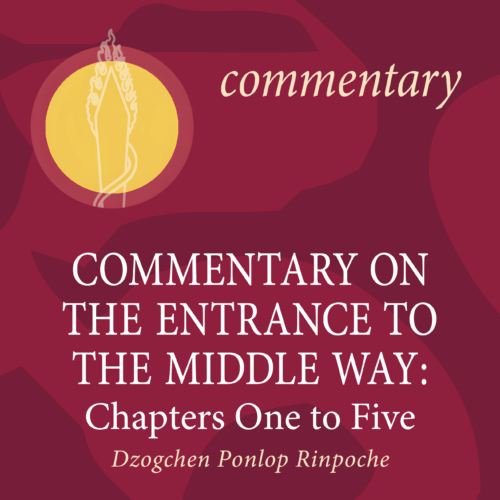
Commentary by Dzogchen Ponlop Rinpoche
This series explicates one of the principal Indian classics of the Madhyamaka tradition, Chandrakirti’s Madhyamakavatara (Entrance to the Middle Way), along with the Kagyü commentary by the eighth Karmapa, The Chariot of the Dakpo Kagyüs. These transcripts cover the Madhyamakavatara’s eleven chapters, which correlate with the ten bhumis (grounds) and the ten paramitas (perfections), plus the ultimate bhumi of buddhahood. The focus is particularly on the sixth chapter of the Madhyamakavatara, which discusses prajna (transcendental knowledge) and its realization of emptiness. Main topics include the selflessness of phenomena and the individual, and the impossibility of finding a self anywhere with the range of phenomenal experience. Includes root text by Chandrakirti and commentary by Mikyö Dorje, translated by Elizabeth M. Callahan. -
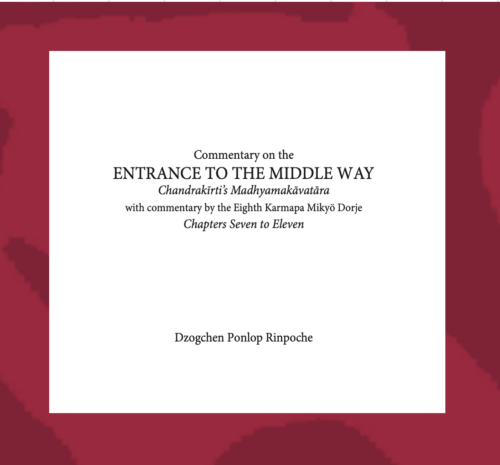
Commentary by Dzogchen Ponlop Rinpoche
This series explicates one of the principal Indian classics of the Madhyamaka tradition, Chandrakirti’s Madhyamakavatara (Entrance to the Middle Way), along with the Kagyü commentary by the eighth Karmapa, The Chariot of the Dakpo Kagyüs. These transcripts cover the Madhyamakavatara’s eleven chapters, which correlate with the ten bhumis (grounds) and the ten paramitas (perfections), plus the ultimate bhumi of buddhahood. The focus is particularly on the sixth chapter of the Madhyamakavatara, which discusses prajna (transcendental knowledge) and its realization of emptiness. Main topics include the selflessness of phenomena and the individual, and the impossibility of finding a self anywhere with the range of phenomenal experience. Includes root text by Chandrakirti and commentary by Mikyö Dorje, translated by Elizabeth M. Callahan. -
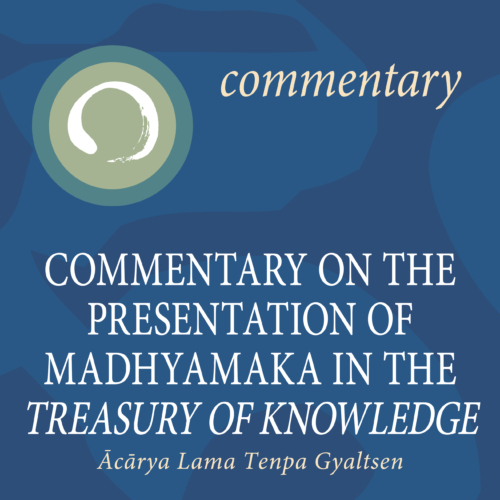
Author: Acharya Lama Tenpa Gyaltsen
A presentation of the philosophical tenets of the Madhyamaka tradition of the Mahayana. Based on sections of Jamgön Kongtrul’s Lodrö Thaye’s Treasury of Knowledge, this text focuses on the Madhyamaka presentation of the two truths, the views of the subschools of the tradition (Prasangika and Svatantrika), and the fundamental understanding of emptiness. Includes root text and commentary by Jamgön Kongtrul Lodrö Thaye, translated by Karl Brunnhölzl. -
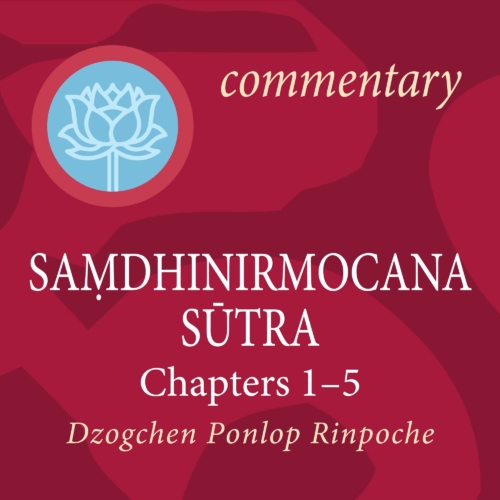
Commentary by Dzogchen Ponlop Rinpoche Oral translation by Mitra Tyler Dewar Root text translation by Gregory Forgues From the English translation by the Buddhavacana Translation Group, under the patronage and supervision of 84000: Translating the Words of the Buddha
A transcript of the oral commentary by Dzogchen Ponlop Rinpoche on the sūtra Unraveling the Intent [of the Buddha], a crucial sūtra for the Yogācāra tradition. In this text, Rinpoche presents with great clarity and detail the prologue and first five sūtra's chapters, which deal with the five defining characteristics of ultimate reality as well as the presentation of the all-base consciousness. -
Out of stock
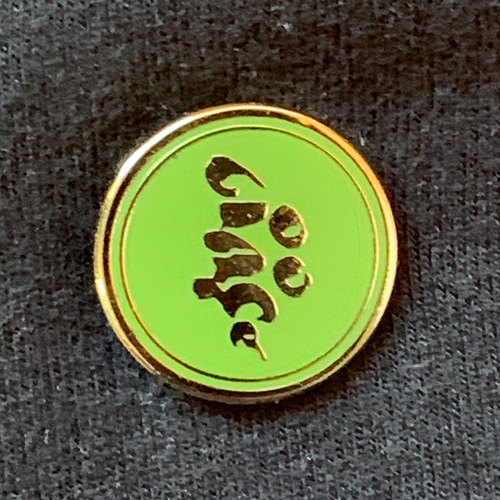 an enamel lapel pin with DHĪḤ, the seed syllable of Manjushri, bodhisattva of wisdom
an enamel lapel pin with DHĪḤ, the seed syllable of Manjushri, bodhisattva of wisdom -
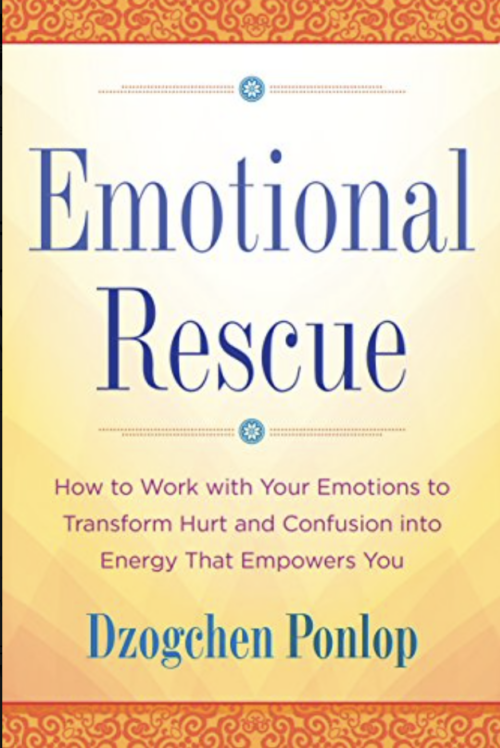
- The hardcopy book is shipped from the US. International customers may wish to explore local booksellers, Shambala Publications, or Amazon to save on shipping cost.
Author: Dzogchen Ponlop Rinpoche
In this life-changing book, acclaimed Buddhist teacher Dzogchen Ponlop Rinpoche shows how to free yourself from being a victim of your emotions by gaining the awareness and understanding that will help you harness their power. Emotions bring color and meaning to our lives, but they can also put us on an exhausting rollercoaster ride that takes us to blissful peak states, the depths of delusion and despair, and everything in between. It is only by learning to relate to our emotions skillfully that we benefit from their richness and glean wisdom, rather than letting them control us. Emotions get their power from a simple but deep-seated source: our lack of self-knowledge. When we bring awareness to our experience of emotions, something truly amazing happens—they lose their power to make us miserable. In this book, Rinpoche leads us through the three steps of his Emotional Rescue Plan. Mindful Gap is the practice of creating a safe distance between you and your emotions, which gives you the psychological space to work with their energy. Clear Seeing involves recognizing the bigger picture. Last, Letting Go is the practice of releasing stressful physical and emotional energy through exercise, relaxation, and awareness. With each step, we become increasingly familiar with the inner workings of our emotions, seeing straight to the heart of anger, fear, passion, jealousy, and pride. With time and practice, instead of leading us astray, our emotions become our guide towards living a more compassionate, creative, and fulfilling life. Dzogchen Ponlop Rinpoche is a widely celebrated Buddhist teacher and the author of Rebel Buddha: A Guide to a Revolution of Mind. ("Rinpoche" is an honorific reserved for highly respected Buddhist teachers.) He is the founder and president of Nalandabodhi, an international network of Buddhist centers. -
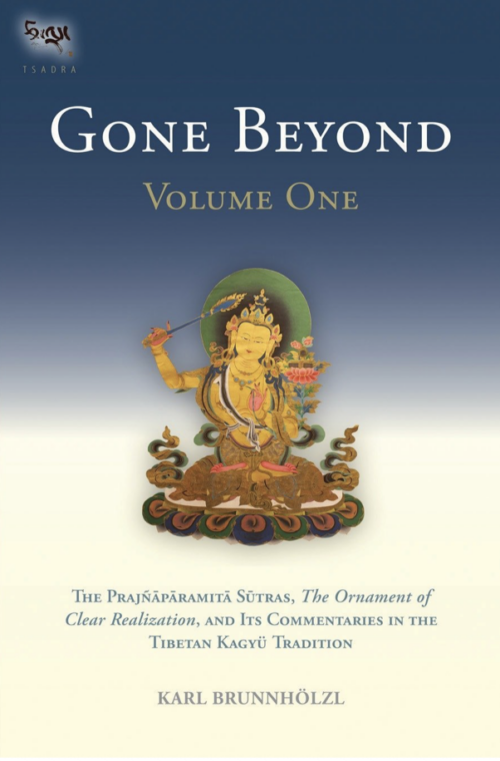
- The hardcopy book is shipped from the US. International customers may wish to explore local booksellers, Shambala Publications, or Amazon to save on shipping cost.
Translator: Mitra Dr. Karl Brunnhölzl
The Abhisamayalamkara summarizes all the topics in the vast body of the Prajnaparamita Sutras. Resembling a zip-file, it comes to life only through its Indian and Tibetan commentaries. Together, these texts not only discuss the "hidden meaning" of the Prajnaparamita Sutras—the paths and bhumis of sravakas, pratyekabuddhas, and bodhisattvas—but also serve as contemplative manuals for the explicit topic of these sutras—emptiness—and how it is to be understood on the progressive levels of realization of bodhisattvas. Thus these texts describe what happens in the mind of a bodhisattva who meditates on emptiness, making it a living experience from the beginner's stage up through buddhahood. Gone Beyond contains the first in-depth study of the Abhisamayalamkara (the text studied most extensively in higher Tibetan Buddhist education) and its commentaries in the Kagyu School. This study (in two volumes) includes translations of Maitreya's famous text and its commentary by the Fifth Shamarpa Goncho Yenla (the first translation ever of a complete commentary on the Abhisamayalamkara into English), which are supplemented by extensive excerpts from the commentaries by the Third, Seventh, and Eighth Karmapas and others. Thus it closes a long-standing gap in the modern scholarship on the Prajnaparamita Sutras and the literature on paths and bhumis in mahayana Buddhism. The first volume presents an English translation of the first three chapters of the Abhisamayalamkara and its commentary by the Fifth Shamarpa. The second volume presents an English translation of the final five chapters and its commentary by the Fifth Shamarpa. Karl Brunnhölzl, MD, was trained as a physician and also studied Tibetology. He received his systematic training in Tibetan language and Buddhist philosophy and practice at the Marpa Institute for Translators, founded by Khenpo Tsultrim Gyamtso Rinpoche. Since 1989 he has been a translator and interpreter from Tibetan and English. He is presently involved with the Nitartha Institute as a teacher and translator. -
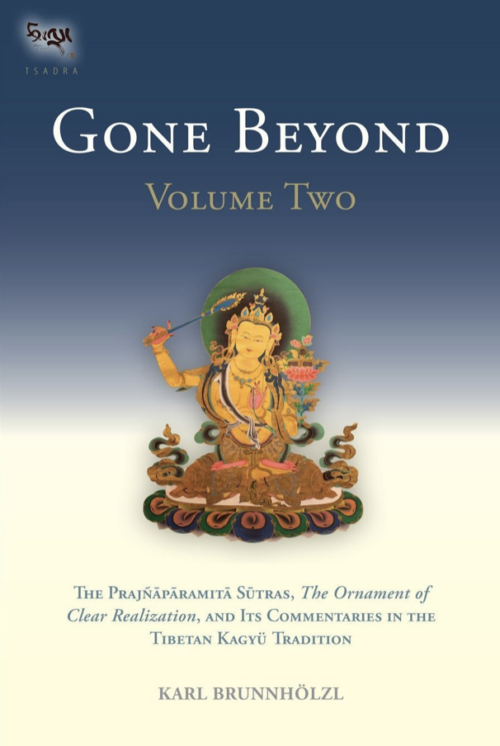
- The hardcopy book is shipped from the US. International customers may wish to explore local booksellers, Shambala Publications, or Amazon to save on shipping cost.
Translator: Mitra Dr. Karl Brunnhölzl
The Abhisamayalamkara summarizes all the topics in the vast body of the Prajnaparamita Sutras. Resembling a zip-file, it comes to life only through its Indian and Tibetan commentaries. Together, these texts not only discuss the "hidden meaning" of the Prajnaparamita Sutras—the paths and bhumis of sravakas, pratyekabuddhas, and bodhisattvas—but also serve as contemplative manuals for the explicit topic of these sutras—emptiness—and how it is to be understood on the progressive levels of realization of bodhisattvas. Thus these texts describe what happens in the mind of a bodhisattva who meditates on emptiness, making it a living experience from the beginner's stage up through buddhahood. Gone Beyond contains the first in-depth study of the Abhisamayalamkara (the text studied most extensively in higher Tibetan Buddhist education) and its commentaries in the Kagyu School. This study (in two volumes) includes translations of Maitreya's famous text and its commentary by the Fifth Shamarpa Goncho Yenla (the first translation ever of a complete commentary on the Abhisamayalamkara into English), which are supplemented by extensive excerpts from the commentaries by the Third, Seventh, and Eighth Karmapas and others. Thus it closes a long-standing gap in the modern scholarship on the Prajnaparamita Sutras and the literature on paths and bhumis in mahayana Buddhism. The first volume presents an English translation of the first three chapters of the Abhisamayalamkara and its commentary by the Fifth Shamarpa. The second volume presents an English translation of the final five chapters and its commentary by the Fifth Shamarpa. Karl Brunnhölzl, MD, was trained as a physician and also studied Tibetology. He received his systematic training in Tibetan language and Buddhist philosophy and practice at the Marpa Institute for Translators, founded by Khenpo Tsultrim Gyamtso Rinpoche. Since 1989 he has been a translator and interpreter from Tibetan and English. He is presently involved with the Nitartha Institute as a teacher and translator. -
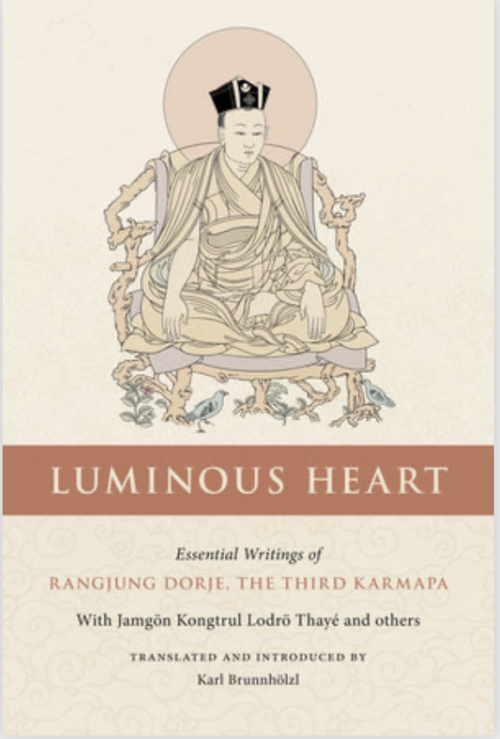
- Available as an eBook for Apple and Android devices.
- The hardcopy book is shipped from the US. International customers may wish to explore local booksellers, Shambala Publications, or Amazon to save on shipping cost.
Translator: Dr. Mitra Karl Brunnhölzl
An extraordinary collection of writings on buddha nature by the Third Karmapa Rangjung Dorje (1284-1339). The Third Karmapa Rangjung Dorje’s unique and balanced view synthesizes Yogācāra Madhyamaka and the classical teachings on buddha nature. His work focuses on the transition from ordinary deluded consciousness to enlightened wisdom, the characteristics of buddhahood, and a buddha’s enlightened activity. Included are commentaries by Jamgön Kongtrul Lodrö Tayé that supplement the view of the Third Karmapa on two fundamental treatises on buddha nature, emphasizing the luminous empty mind of buddha nature as presented by the great Indian masters Maitreya and Asaṅga. For those practicing the sutrayāna and the vajrayāna in the Kagyü tradition, what these texts describe can be transformed into living experience. -
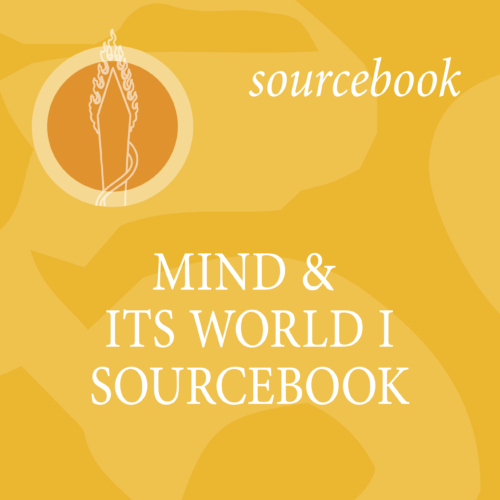 Mind and Its World I begins a detailed analysis of the subjective side of experience. It examines mind and how it perceives its world in valid and invalid ways based on the Classifications of Mind, which provides divisions and definitions of the types of mind identified in the epistemological tradition of Dignaga and Dharmakirti. The key point is the discernment of the aspects of mind that validly perceive things the way they are, which are distinguished from those aspects of mind that are mistaken and tainted by fundamental delusion, and thus keep one bound in samsara. It also introduces the two Hinayana philosophical systems, the Vaibhashika and Sautrantika schools, covering the two truths and the process of perception. Selected readings, analytical meditations, study questions, review summaries are included in the sourcebook. Also available as an eBook for Apple or Android devices.
Mind and Its World I begins a detailed analysis of the subjective side of experience. It examines mind and how it perceives its world in valid and invalid ways based on the Classifications of Mind, which provides divisions and definitions of the types of mind identified in the epistemological tradition of Dignaga and Dharmakirti. The key point is the discernment of the aspects of mind that validly perceive things the way they are, which are distinguished from those aspects of mind that are mistaken and tainted by fundamental delusion, and thus keep one bound in samsara. It also introduces the two Hinayana philosophical systems, the Vaibhashika and Sautrantika schools, covering the two truths and the process of perception. Selected readings, analytical meditations, study questions, review summaries are included in the sourcebook. Also available as an eBook for Apple or Android devices. -
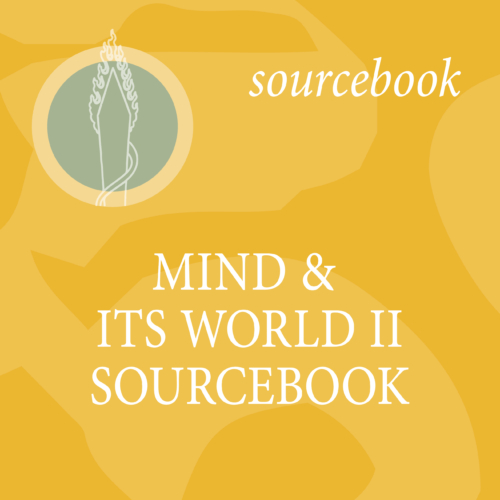 Mind and Its World II examines the theme of karma. It begins the study of causes and conditions as presented in Collected Topics, the twelve nidanas, or chain of interdependent origination, and the distinction between primary minds and mental factors. It includes a detailed presentation of the mental factors from the Classifications of Mind. Selected readings, analytical meditations, study questions, and review summaries are included in the sourcebook. Also available as an eBook for Apple or Android devices.
Mind and Its World II examines the theme of karma. It begins the study of causes and conditions as presented in Collected Topics, the twelve nidanas, or chain of interdependent origination, and the distinction between primary minds and mental factors. It includes a detailed presentation of the mental factors from the Classifications of Mind. Selected readings, analytical meditations, study questions, and review summaries are included in the sourcebook. Also available as an eBook for Apple or Android devices. -
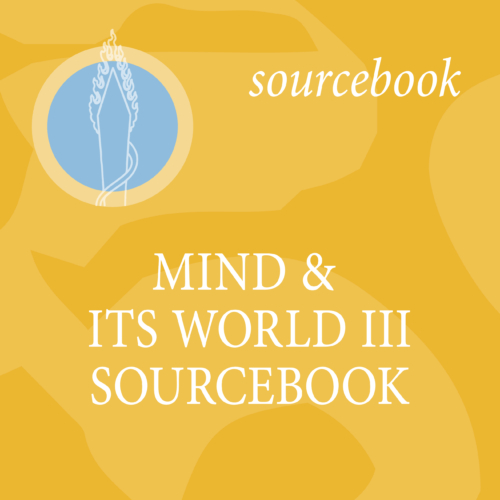
This version is for Self-Paced Online Course (SPOC) only. The UPDATED version for non Self-Paced Online Course will be available in the Fall 2023.
Mind and Its World III first concludes the investigation into causes and results as presented in Collected Topics. It then turns to the analysis of the ways in which mind cognizes phenomena, particularly the ways in which conceptuality functions, by investigating the modes of engagement from Classifications of Mind and the methods that lead to cognition from Collected Topics. Selected readings, analytical meditations, study questions, and review summaries are included in the sourcebook. Also available as an eBook for Apple or Android devices. -
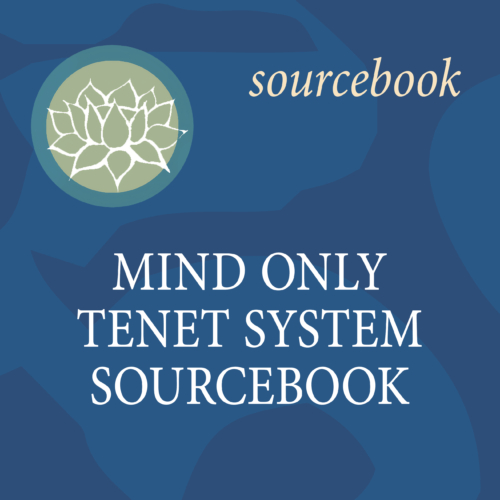 This sourcebook offers a systematic presentation of the Mind Only (Cittamātra) tenet system, one of the principal Mahāyāna philosophical schools. The Mind Only school emphasizes the doctrine that the subjective and objective poles of perception are not different in substance, but mental in nature. Specific topics include discussions on perception, the fundamental notion of “mind only,” the three natures, self-awareness, and the all-base consciousness. Also included is a brief discussion of the paths and the fruition. Selected readings, analytical meditations, study questions, and review charts are included in the sourcebook. Includes root text written by Acharya Lama Tenpa Gyaltsen.
This sourcebook offers a systematic presentation of the Mind Only (Cittamātra) tenet system, one of the principal Mahāyāna philosophical schools. The Mind Only school emphasizes the doctrine that the subjective and objective poles of perception are not different in substance, but mental in nature. Specific topics include discussions on perception, the fundamental notion of “mind only,” the three natures, self-awareness, and the all-base consciousness. Also included is a brief discussion of the paths and the fruition. Selected readings, analytical meditations, study questions, and review charts are included in the sourcebook. Includes root text written by Acharya Lama Tenpa Gyaltsen. -
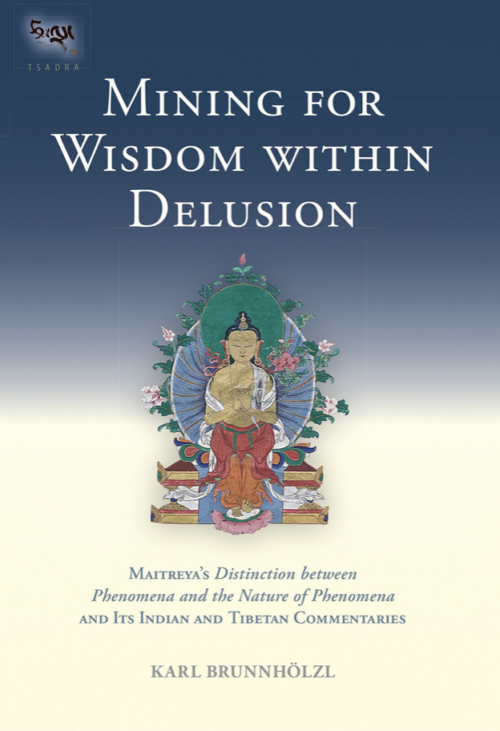
- The hardcopy book is shipped from the US. International customers may wish to explore local booksellers, Shambala Publications, or Amazon to save on shipping cost.
Author: Dr. Mitra Karl Brunnhölzl
Mining for Wisdom within Delusion: Maitreya's "Distinction between Phenomena and the Nature of Phenomena" and Its Indian and Tibetan Commentaries
Maitreya’s Distinction between Phenomena and the Nature of Phenomena distinguishes the illusory phenomenal world of saṃsāra produced by the confused dualistic mind from the ultimate reality that is mind’s true nature. The transition from the one to the other is the process of “mining for wisdom within delusion.” Maitreya’s text calls this “the fundamental change,” which refers to the vanishing of delusive appearances through practicing the path, thus revealing the underlying changeless nature of these appearances. In this context, the main part of the text consists of the most detailed explanation of nonconceptual wisdom—the primary driving force of the path as well as its ultimate result—in Buddhist literature. The introduction of the book discusses these two topics (fundamental change and nonconceptual wisdom) at length and shows how they are treated in a number of other Buddhist scriptures. The three translated commentaries, by Vasubandhu, the Third Karmapa, Rangjung Dorje, and Gö Lotsāwa, as well as excerpts from all other available commentaries on Maitreya’s text, put it in the larger context of the Indian Yogācāra School and further clarify its main themes. They also show how this text is not a mere scholarly document, but an essential foundation for practicing both the sūtrayāna and the vajrayāna and thus making what it describes a living experience. The book also discusses the remaining four of the five works of Maitreya, their transmission from India to Tibet, and various views about them in the Tibetan tradition. -
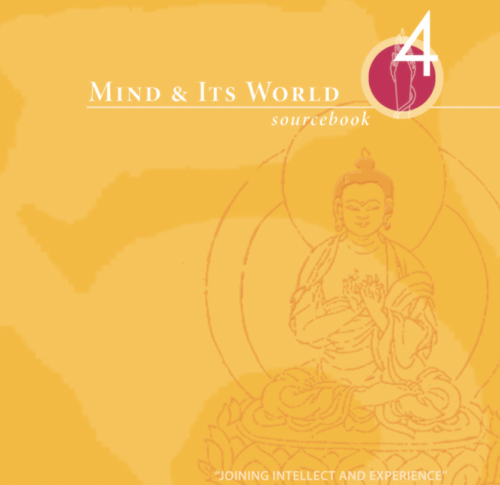
This is the updated Mind and Its World 4 Sourcebook for semester course and Summer Institute (not for Self-Paced Online Course). E-book may be available in 2024.
The Mind and Its World 4 sourcebook presents the path and result of foundational Buddhism as found in the Vaibhāṣika and Sautrāntika philosophical traditions, based on The Gateway that Reveals the Philosophical Traditions to Fresh Minds root text. Talks by Dzogchen Ponlop Rinpoche, Acharya Kelsang Wangdi, Acharya Sherab Gyaltsen, and Professor Phil Stanley bring clarity to the subjects discussed in the root text. Key topics include the meaning of the path, the four applications of mindfulness, personal identitylessness, dependent origination, the four realities of the noble ones, the thirty-seven branches of enlightenment, and the results of the path. Numerous charts and diagrams are included as aids to understanding the material.
-
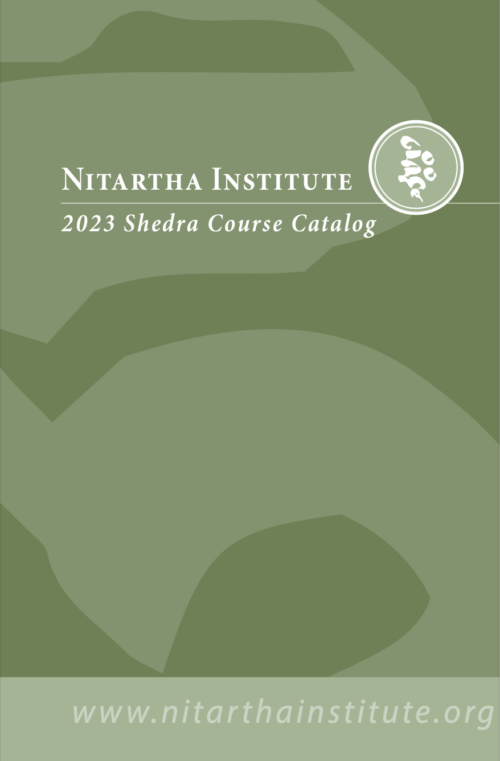 Learn more about Nitartha Institute's breadth of course offerings from the 2023 Shedra Course Catalog. The primary goal of Nitartha Institute is to provide students with a systematic foundation in the central teachings of the Buddhist tradition. The Institute upholds the importance of non-sectarianism and appreciation of the many forms of Buddhism, and thus, students of any background are welcome and encouraged to attend. This Course Catalog contains a complete list of Nitartha Institute’s curriculum offerings; delivered through its four academic departments, based on the five traditional sciences (pañcavidyā) taught at Nālandā University in India: Department of Buddhist Studies (Science of Valid Cognition and the Inner Science of Mind), Department of Languages, Department of Creativity and the Arts, and the Department of Healing. NOTE: Download info will be provided upon successful check-out.
Learn more about Nitartha Institute's breadth of course offerings from the 2023 Shedra Course Catalog. The primary goal of Nitartha Institute is to provide students with a systematic foundation in the central teachings of the Buddhist tradition. The Institute upholds the importance of non-sectarianism and appreciation of the many forms of Buddhism, and thus, students of any background are welcome and encouraged to attend. This Course Catalog contains a complete list of Nitartha Institute’s curriculum offerings; delivered through its four academic departments, based on the five traditional sciences (pañcavidyā) taught at Nālandā University in India: Department of Buddhist Studies (Science of Valid Cognition and the Inner Science of Mind), Department of Languages, Department of Creativity and the Arts, and the Department of Healing. NOTE: Download info will be provided upon successful check-out. -
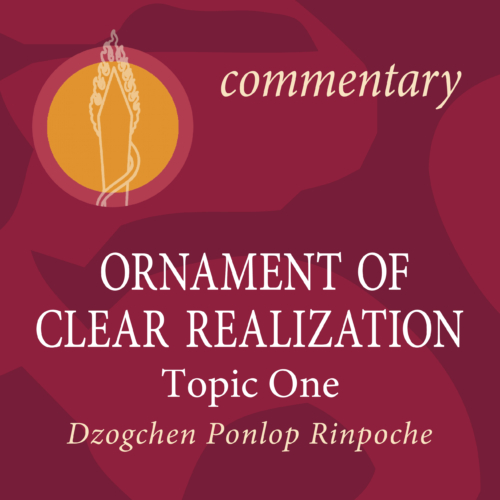
A commentary by Dzogchen Ponlop Rinpoche
This series (Introduction to Topic 8) presents Maitreya’s Ornament of Clear Realization based on the commentary by the eighth Karmapa Mikyö Dorje, Relief of the Noble Ones. Maitreya’s work is the central Mahayana text on the stages of the path and their fruition, for both the Hinayana and Mahayana. It is traditionally summarized in seventy points, or more generally in eight chapters. Whereas the Madhyamaka literature presents the explicit meaning of the Prajnaparamita Sutras, the subject matter of the Abhisamayalamkara is the hidden or implied meaning: the various stages of bodhisattvas, shravakas, and pratyekabuddhas on the path of the meditation on emptiness, from the stage of beginner up through buddhahood. Includes root text by Maitreya and commentary by Mikyö Dorje, translated by Mitra Dr. Karl Brunnhölzl. -
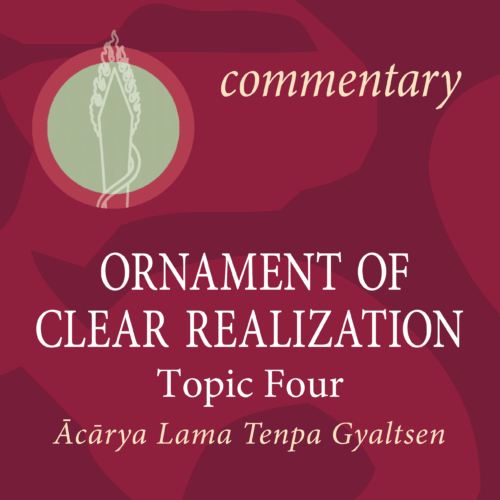
A commentary by Ācārya Lama Tenpa Gyaltsen
This series (Introduction to Topic 8) presents Maitreya’s Ornament of Clear Realization based on the commentary by the eighth Karmapa Mikyö Dorje, Relief of the Noble Ones. Maitreya’s work is the central Mahayana text on the stages of the path and their fruition, for both the Hinayana and Mahayana. It is traditionally summarized in seventy points, or more generally in eight chapters. Whereas the Madhyamaka literature presents the explicit meaning of the Prajnaparamita Sutras, the subject matter of the Abhisamayalamkara is the hidden or implied meaning: the various stages of bodhisattvas, shravakas, and pratyekabuddhas on the path of the meditation on emptiness, from the stage of beginner up through buddhahood. Includes root text by Maitreya and commentary by Mikyö Dorje, translated by Mitra Dr. Karl Brunnhölzl. -
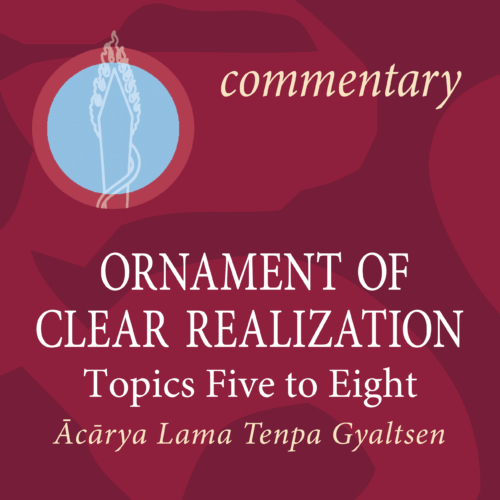
A commentary by Āchārya Lama Tenpa Gyaltsen
This series (Introduction to Topic 8) presents Maitreya’s Ornament of Clear Realization based on the commentary by the eighth Karmapa Mikyö Dorje, Relief of the Noble Ones. Maitreya’s work is the central Mahayana text on the stages of the path and their fruition, for both the Hinayana and Mahayana. It is traditionally summarized in seventy points, or more generally in eight chapters. Whereas the Madhyamaka literature presents the explicit meaning of the Prajnaparamita Sutras, the subject matter of the Abhisamayalamkara is the hidden or implied meaning: the various stages of bodhisattvas, shravakas, and pratyekabuddhas on the path of the meditation on emptiness, from the stage of beginner up through buddhahood. Includes root text by Maitreya and commentary by Mikyö Dorje, translated by Mitra Dr. Karl Brunnhölzl.
